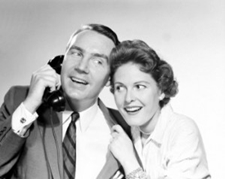One of the most selfish things I do every week is volunteer for a local hospice group. Those few hours with patients and their families remind me to be grateful—every day—for health, love and time. There’s no faster way to put life in perspective. Unfortunately, the lesson tends to fade between visits, which is why I go every week.
Yesterday, though, no excuses. I was plain feeling sorry for myself. Even worse than not writing, I’d deleted whole paragraphs of my book, convinced that the entire thing belonged in the trash. Why keep up the struggle? Why write at all? And even if I finished, who would read such drivel? I finally took a break to read about a hospice patient named Tony.
Before he fell ill, Tony dreamed of becoming an author, and he wrote a thriller about an FBI profiler. Not only did he finish writing—he paid to have 1,200 copies printed. Like most of us, he must have pictured himself at Barnes & Noble, signing books for his fans. And then came the doctor’s diagnosis.
“I know I’ll never be able to sell those books, but I sure would like for people to be able to read them,” Tony told a volunteer. “I’d give them out for free if I could find a way.” The volunteer, a writer himself, launched a campaign to distribute the books to as many readers as he could find. Tony wrote a personal note to be enclosed, and from his bed, he showed off the thank-you cards he received.
The old saw about “living each day as if it’s your last” has always irritated me. It implies a level of pressure no human being can sustain on a regular basis. (Who would ever make the bed or wash the dishes?) Still, we don’t have forever. We might not even have next week. Our dreams have a shelf life, even if we don’t know the expiration date.
Tony, thanks to you, I'll hug my family tonight, floss my teeth, and keep on writing.

